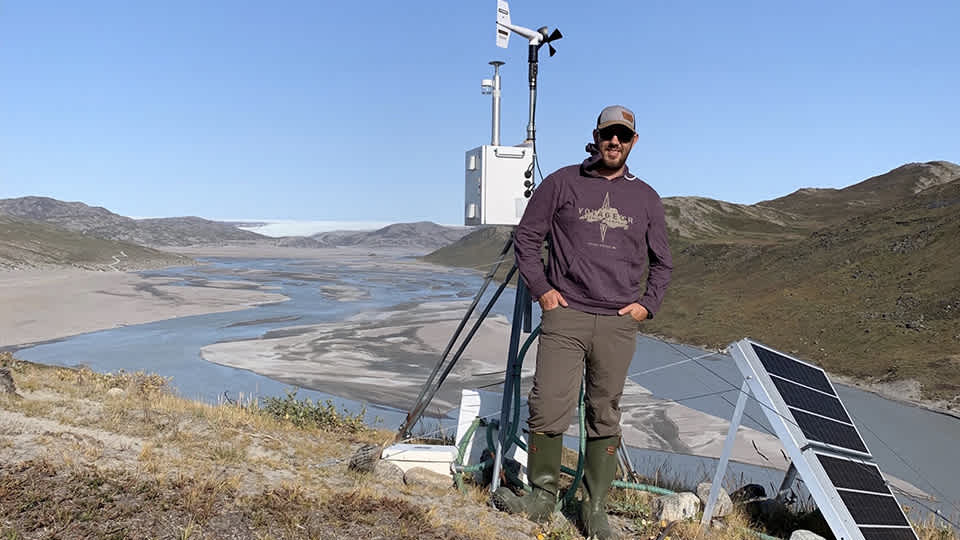
Meet Dr. Adam Heathcote, Director of the Department of Water & Climate Change
What does "bold science" mean to you?
Bold science means working to solve big problems with innovative ideas and, more importantly, making those ideas accessible to the public.
How does your role at the Science Museum play a part in combating climate change?
I’m a limnologist, aka a lake scientist. Lakes are sentinels for climate change and in many parts of the world are already showing significant changes due to a warming planet.
Warmer water and an earlier ice-off date don’t necessarily sound like such a bad thing, right? But, what if those warmer temperatures lead to increasingly toxic harmful algae blooms and the loss of cold-water fisheries, such as walleye, lake trout, tullibee? These fundamental ecological changes are touchstones for the public who live, recreate, and have deep cultural ties to their local lakes.
By framing climate change in the context of lakes, we raise awareness of its very real and serious consequences, we engage the public on a threatened natural resource they care deeply about, and we have a chance to learn more about how these valuable waters will respond to a warming planet.
What gives you hope in the fight against climate change?
We shouldn’t focus on “winning the fight” against climate change because it has already begun, and the Earth will continue to warm at unprecedented rates due to our past activities. Instead, we should concentrate on better understanding resilience in nature and how we as humans can best work together to mitigate more catastrophic changes in the future. The young people of the world, who will inhabit that future, already understand this acutely and through their demonstrations I have hope that the rest of the world will be spurred to respond. We cannot rely on waiting for them to fix the problem we created, we need to hear their call to action and meet it now with serious environmental policies based on sound environmental science.
What are the biggest opportunities for addressing climate change?
At an individual level, the best way to address climate change is to never underestimate the power of your own personal choices. This includes everything from lowering your own carbon footprint to vocally advocating for policies and politicians that demonstrate a serious stance on reducing greenhouse gas emissions at the local, state, and federal level.
Why is bold science important to democracy?
Science's role in our democracy is to provide the best information possible to the public and policymakers so that they can make informed decisions on issues that affect us all. We must make the science understandable to the public so that they can hold their government accountable with their vote when [those in power] choose to ignore the data.
Tell us your favorite way to take action for science.
Vote! Vote for candidates who understand that science is not something you believe in, but the interpretation of objective data. Candidates and voters will not always agree on the best way forward, but they should at least be able to start with the same facts.
Science is critical to the world. How can people support science-forward policies and programs?
Support candidates with science-forward plans and let your representatives (both local and national) know that it's important to you. Call them, write them, email them. Tell your friends and family that it's important to you and explain why. And once again, vote like science is on the ballot!